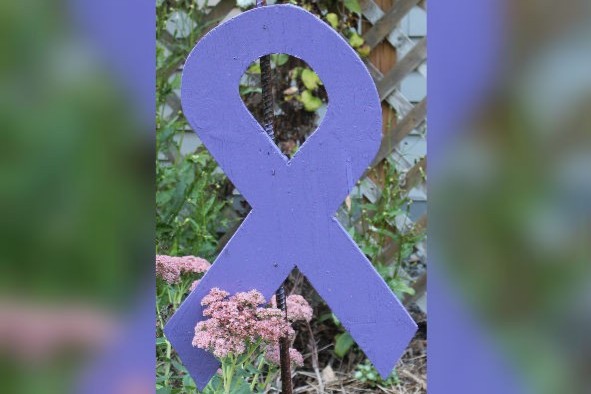PRESQUE ISLE, Maine — October is Domestic Violence Awareness Month and on Thursday, Oct. 25, despite the bitterly cold temperatures and wind, a group of over 30 community members gathered at the University of Maine at Presque Isle to ensure that the stories of victims and survivors are never forgotten.
The fifth annual Take Back the Night event is a national movement that aims to spread awareness of both domestic and sexual violence. Thursday evening began with a moment of silence to honor all deceased victims of such violence. The group then walked around campus — starting at Gentile Hall and ending at South Hall — holding signs in support of victims and survivors and followed by a police escort.
According to a recent report released by the state Domestic Abuse Homicide Review, 10 out the 24 homicides in Maine last year were related to domestic violence. Eight of the 17 homicides that have occurred in 2018 thus far have been domestic violence-related.
In regard to sexual assault, the Maine Department of Public Safety has stated that the number of reported rapes in the state has increased by 17 percent from 383 cases to 448 cases.
Shirley Rush, associate professor of social work and director of UMPI’s bachelor in social work program, said that as long as those tragic stories of violence continue to occur she and other community members will hold events like Take Back the Night in support of all who have been affected by violence.
“The name ‘Take Back the Night,’ comes from the fact that night is often not a safe time for people, especially women, to be walking alone,” Rush said. “We want to spread awareness that women’s safety is a public safety issue.”
UMPI social work student Riana Teixeira is president of the campus Black Student Union, who sponsored this year’s Take Back the Night. She took part in the event to help raise awareness and combat the stigma that she said is often associated with talking about domestic violence and sexual assault.
“It’s easy for people who have been in those situations to feel like they’re alone, but they’re not alone,” Teixeira said.
After the walk, the group gathered inside the faculty lounge of South Hall and allowed those who have experienced or witnessed domestic violence or sexual assault to share their stories. They also read several written stories that people shared anonymously by slipping pieces of paper into boxes that were placed around campus.
Advocates from the Hope and Justice Project, Aroostook Band of Micmacs Domestic and Sexual Violence Advocacy Center and the Aroostook Mental Health Center’s Sexual Assault Services told of the various programs and services they offer to community members.
In order to respect the privacy of survivors, Rush asked that no one in the room share the stories they had heard with anyone and that no media representatives record that portion of the night. She thanked everyone who came out in support of survivors and those who told their stories amidst a culture that often tries to shame survivors.
“I hope that we see a day when we no longer have to hold events like this,” Rush said. “But until then we will keep coming together and we will tell these stories.”








